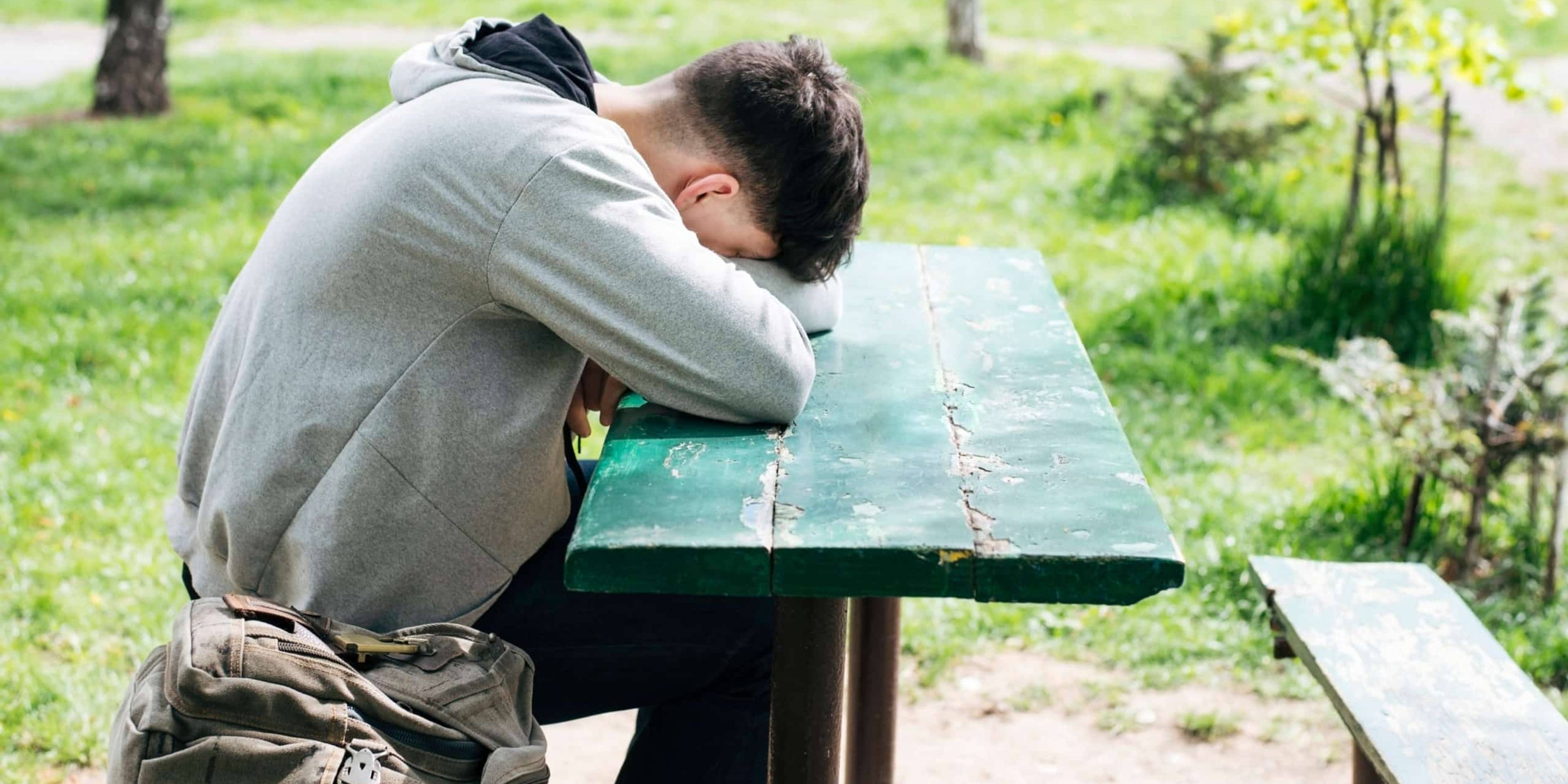October 13, 2021
How can I help my son to make more friends and feel less left out?

My son is in year two of senior school, after starting a new school in year 5. He was just settling into year 6 when lockdown began and, since then, he’s not really been able to get himself fully going again. Last night he revealed that he’s often left out of groups or feels that he can’t join in. He’s not sporty and needs to be forced to go to the after school sports clubs, causing more anxiety. What can I do to help?
It is always gut-wrenching for parents to hear our children’s disgruntlement and upset about feeling unsettled or not fitting in. First of all, full credit to you for the fact that your son did open up and tell you how he is feeling. The fact that he did so means that he feels able to explain his feelings and expects a supportive and positive response. As you have identified in your email, there is little doubt that, for some children, lockdown has had a negative impact on their social skills. Settling into school life takes time and months of remote learning has contributed to children feeling somewhat set back in their friendships. They have missed out on thousands of interactions with peers, and participation in routine activities was difficult for a prolonged period.
It is always gut-wrenching for parents to hear our children’s disgruntlement and upset about feeling unsettled or not fitting in. First of all, full credit to you for the fact that your son has opened up and told you how he is feeling. The fact that he did so means that he feels able to explain his feelings and expects a supportive and positive response.
As you have identified in your email, there is little doubt that, for some children, lockdown has had a negative impact on their social skills. Settling into school life takes time and months of remote learning has contributed to children feeling somewhat set back in their friendships. They have missed out on thousands of interactions with peers, and participation in routine activities was difficult for a prolonged period. However, now that children are back in school and the term is in full swing, we can work towards building up their self-esteem and ability to take full advantage of the opportunities open to them.
My first tip is to reassure your son that you have heard what he said and that you will work on it together, within family life. Over the weekend, it would be a good idea for both parents to sit down with him to talk about it. Reflect back the language that he used and draw out three things that you can work on proactively together. So, “we heard you say that you feel left out sometimes. Is that accurate?” “I think you said that you struggle to fit in. Is that the case?” Clarify what he told you and show him that you are listening in a loving, non-judgmental and objective way. Both of you can show him how proud you are of him for sharing his feelings with you and give him the sense that you have confidence in his ability to work through these issues.
Can he identify two things that he would particularly like to work on over the week ahead? Perhaps he isn’t sure how to join in a particular activity. This could spark a good quality conversation about ‘fitting in’. Ask him to think through where, in his life, he does feel like he fits in. When he talks about where he doesn’t fit in, can you co-create some ideas to try when he is back at school?
As you can tell, this strategy is about boiling down problems into something tangible and identifiable and then working together to create small, achievable goals. As part of this dialogue, you want him to come up with evidence that he is capable of fitting in (he may just be forgetting the times that he did/does). There will be areas of life where he thrives and it is a good idea to draw these out. How can he apply strategies that work in one area of his life, to another? Does ‘fitting in’ require some social skills practice? Are there particular conversations you can script and test out within family life?
Discuss what activities or clubs he would feel interested in or enthusiastic about joining, at school or outside of school? Before insisting that he attend any club, try to support him to attend one that he has some interest in. Ahead of this, is there someone that he could attend with? Could you talk to the teacher/leader of the club to find out what they will be doing in the next session? For example, if they will be making a go-kart in the STEM club, your son can be supported to think through ways in which he might assert himself and what he might enjoy about this activity. If he can’t find a club that interests him, is there a chance that he could approach the school about starting something different? Everybody likes some entrepreneurial spirit! Tune into his hobbies and interests. Sometimes role models talk about not ‘fitting in’ at school or experiencing anxiety within their own lives. Have a think about who he might look up to and seek out appropriate material.
I would suggest that there is work to be done on his general self-esteem. Do read the related resources on this within the Tooled Up library and consider our various ‘wobble’ resources, designed to nudge children towards puzzling out their anxieties and fears, with support. Have weekly family chats where you note his progress and make your parental pride in his courage and efforts clear. If you ever have any concerns about his mental health, always head to the GP as a first port of call.
More Parenting Questions

Sep 18, 2025
I have a Year 5 daughter with severe food allergies. She had an incident last summer term where she ingested one of her allergens at school (incorrectly labelled ingredients) and she now has a lot of anxiety around food, and is worried that every tickle in her throat is the beginning of an allergic reaction. What can I do to help her?
Allergies are a constant source of anxiety for both young people suffering with them and parents/carers trying to empower their young person to manage positively. The role of the parents is complex, as there are two main responsibilities. Firstly, supporting their young person to risk assess appropriately in different environments and secondly, the harder task to help them manage the risks without overwhelming them with fear. It is a difficult, ever changing balancing act as the young person develops more independence over eating and managing their own diet.

Sep 15, 2025
Help! My 5-Year-Old son struggles with low self-esteem. What can I do? He has lost his grandparent recently, could that have something to do with it?
It can feel worrying to see a young child struggle with confidence so early in life. Thank you for raising this important question. The good news is that there are many simple, everyday ways you can help to build your son’s sense of self-worth.

Jun 23, 2025
There was an attempted abduction locally. How can I support my child?
It might not feel like it right now, but it’s worth knowing that stranger abductions of children are extremely rare. In the UK, there are around 500–600 reports of child abduction each year, but the vast majority are attempted rather than successful, and many are later reclassified as misunderstandings, rather than genuine abductions.

Jun 17, 2025
My daughter (aged 10) has broken up with a friend. How can I help her?
It is the hardest experience as a parent, watching our children muddle their way through friendships, knock backs, being included then excluded, invited to parties and then kept at bay. We have all been there and it can feel emotionally painful and sad.

Mar 20, 2025
Help! My five year old is wetting the bed at night. What can I do?
You're not alone! Nocturnal enuresis, or bedwetting, is common in young children. We've asked paediatrician, Dr Christine Riyad, for advice.

Mar 17, 2025
My 10 year old is experiencing big emotions. Do you have any advice?
We've asked Dr Sophie Nesbitt, Consultant Child Psychologist, for her top tips.

Feb 12, 2025
Is it ok for my four year old to still use a dummy?
It's completely natural to feel concerned when your child continues using a pacifier or sucking their thumb beyond the toddler years. We've asked paediatrician, Dr Christine Riyad, for advice.

Dec 31, 2024
My son wants to buy his girlfriend an 18th birthday present. Help!
Give yourself a pat on the back as your teen is asking YOU for advice. It is a sign that there is good communication between you, and that he sees you as a source of knowledge! I think his question is a wonderful one. Why? Because it shows he values the relationship, recognises the importance of a milestone birthday and knows that gift-buying is not a simple activity.

Dec 18, 2024
What do we need to consider when thinking about hiring a tutor?
Private tutoring can be a great way to support your child's education, but finding the right person can also feel overwhelming. The tutoring industry is largely unregulated in the UK and so it can be challenging to know where to start or what to look for.

Oct 22, 2024
My 11 year old daughter is always hungry. Should I be concerned?
This is a common concern for many parents. Engaged and attentive parents are generally mindful of their child’s relationship with food. This is not surprising given the shameful narrative surrounding the idea of being overweight or obese, and the association that is often made that this is linked to neglectful parenting.